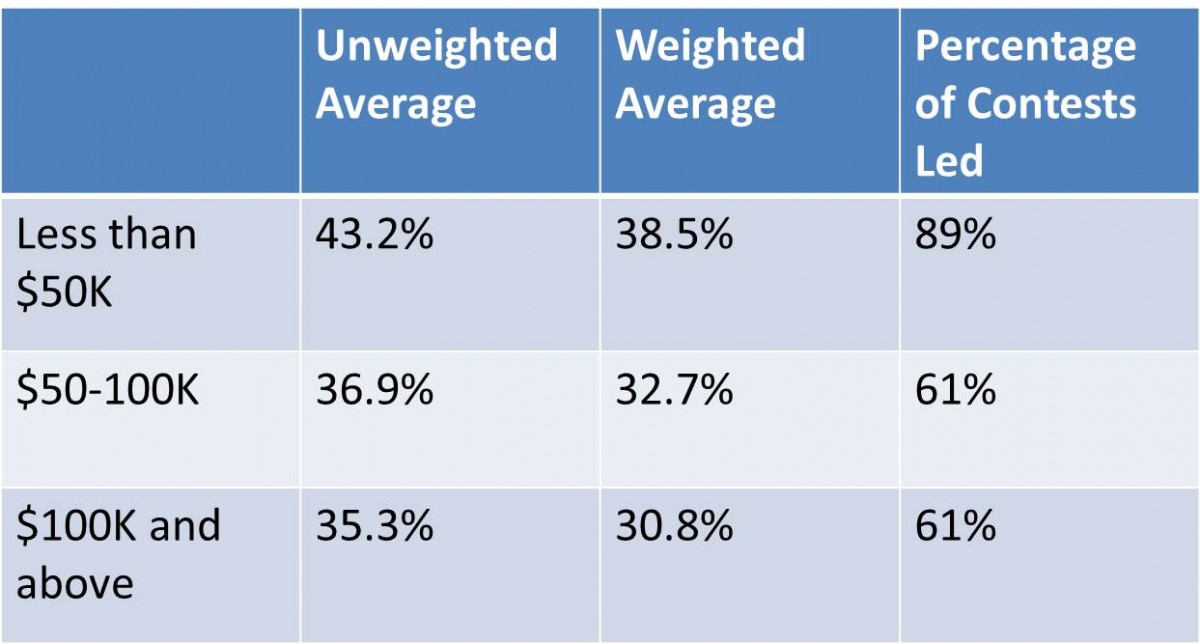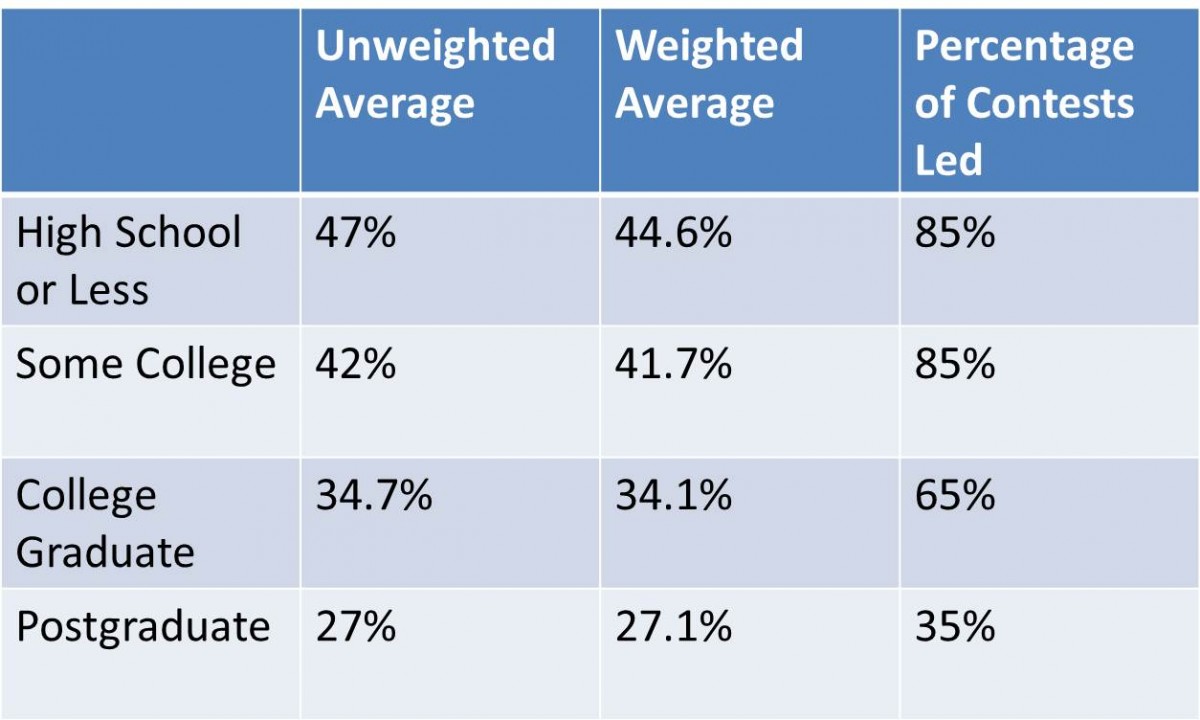If the current polls hold up and Ted Cruz pulls out a victory over Donald Trump in Wisconsin, the media spin will immediately focus on The Donald’s “terrible two weeks” as the proximate cause of his defeat. As the New York Times puts it: “A Cruz victory will suggest that a backlash against Mr. Trump has set in after a series of nasty episodes, including his insults of Heidi Cruz and the arrest of Corey Lewandowski, Mr. Trump’s campaign manager, on a charge of manhandling a female reporter.” This narrative fits nicely with the media’s tendency to portray political campaigns as a horse race in which the tactical decisions by candidates collectively exert a huge influence on the election outcome. Under such a dynamic, a candidate’s fortunes can ebb and flow quickly as the result of even a single misstep, as when a campaign manager allegedly pushes around a female reporter, or a candidate insults another candidate’s wife.
But as the Times own analyst Nate Cohn reminds, there is an alternative explanation for why Trump may not do well in Wisconsin tonight – one more consistent with how political scientists view the nominating process. Simply put, Wisconsin is not a good state for Trump, demographically speaking. That is, even without Trump’s “gaffes”, it didn’t look like he would do particularly well in a state whose voters tend to be, on average, a bit more educated, with higher incomes, and more religious than the typical Trump voter, to cite only a couple of demographic classes. As research by Middlebury College student Tina Berger shows (see below), although Trump’s support ranges across demographic classes, for the most part exit polls suggest he does a bit better among downscale white voters. Here are his averages based on income according to exit polls – although he does well across income groups, he does slightly better among lower income voters. The last column is the percentage of times Trump won that demographic group in a particular nominating contest.

And here is the same type of analysis based on education, again using exit poll data Berger has analyzed. Once more, although he does well among all eduction levels, his strength increases among the less well-educated.

Moreover, for what it is worth, polls in Wisconsin are not consistent with the narrative that he is being hurt by his recent remarks about abortion or the incident involving his campaign manager. But that will not stop the media from claiming otherwise should he lose the state. Polls close there in less than two hours, but we may be in for a long night based on current polling which gives Cruz a slight lead over Trump.

On the Democratic side, meanwhile, all the talk is about Bernie Sanders’ “momentum” coming off of his string of five victories in the six most recent Democratic contests. But as a concept by which to explain a candidate’s success and failures, momentum is a much touted but poorly defined term. It is possible to believe a candidate can gain momentum as a result of a series of victories if those wins drive opponents from the field, and the winning candidate then picks up some of the departed candidates’ votes. But that is not what has happened with Bernie and Clinton – no Democrat has dropped out as a result of Bernie’s victories. However, if by momentum one means additional votes picked up in subsequent contests solely due to the victories themselves, then I’m skeptical that the concept has any meaning. This is particularly true in Sanders’ case, since all his recent victories came in caucus states and, along with his defeat in the Arizona, netted him roughly thirty additional delegates. This is not nearly the pace he needs to achieve if he hopes to close delegate gap with Clinton before the Democratic convention. And it doesn’t look like Wisconsin is going to do much to change those dynamics. Assuming currently polling holds up, he may net a half dozen or so additional delegates tonight. That’s not my definition of momentum!

And that is the problem Sanders faces looking ahead – the Democratic method of allocating delegates proportionally makes it very hard for him to cut into Clinton’s lead in any significant fashion even if he ekes out victories in delegate-rich primary states which, so far, he has been largely unable to do. If Clinton performs well in the New York primary, where she had a strong lead in the polls, she could in one night erase any of the delegate gains Sanders has accumulated by winning 6 of the 7 most recent contests. So much for his momentum.
This, of course, is precisely what the punditocracy does not want to hear, since it undercuts the horse race narrative that drives so much of their coverage. And so no matter what the outcome tonight, I expect to hear a lot about “momentum” and Trump’s gaffes and how we have witnessed a potential “gamechanger” in Wisconsin. And, with roughly two weeks before the New York primaries, the media pundits will have plenty of time to speculate, based on the usual “well-placed sources”, about strife in the campaign of (fill in the name of the candidate who lost) and how they are considering retooling their campaign strategy and bringing in new advisers and changing tactics and kissing babies and changing hairstyles, etc.
And the winners? Why, they will have momentum!
I’ll be intermittently live blogging the results tonight at this site, then on Australian television bright and early tomorrow morning to break it all down, just in case you live Down Under!
In the meantime, On, Wisconsin!
